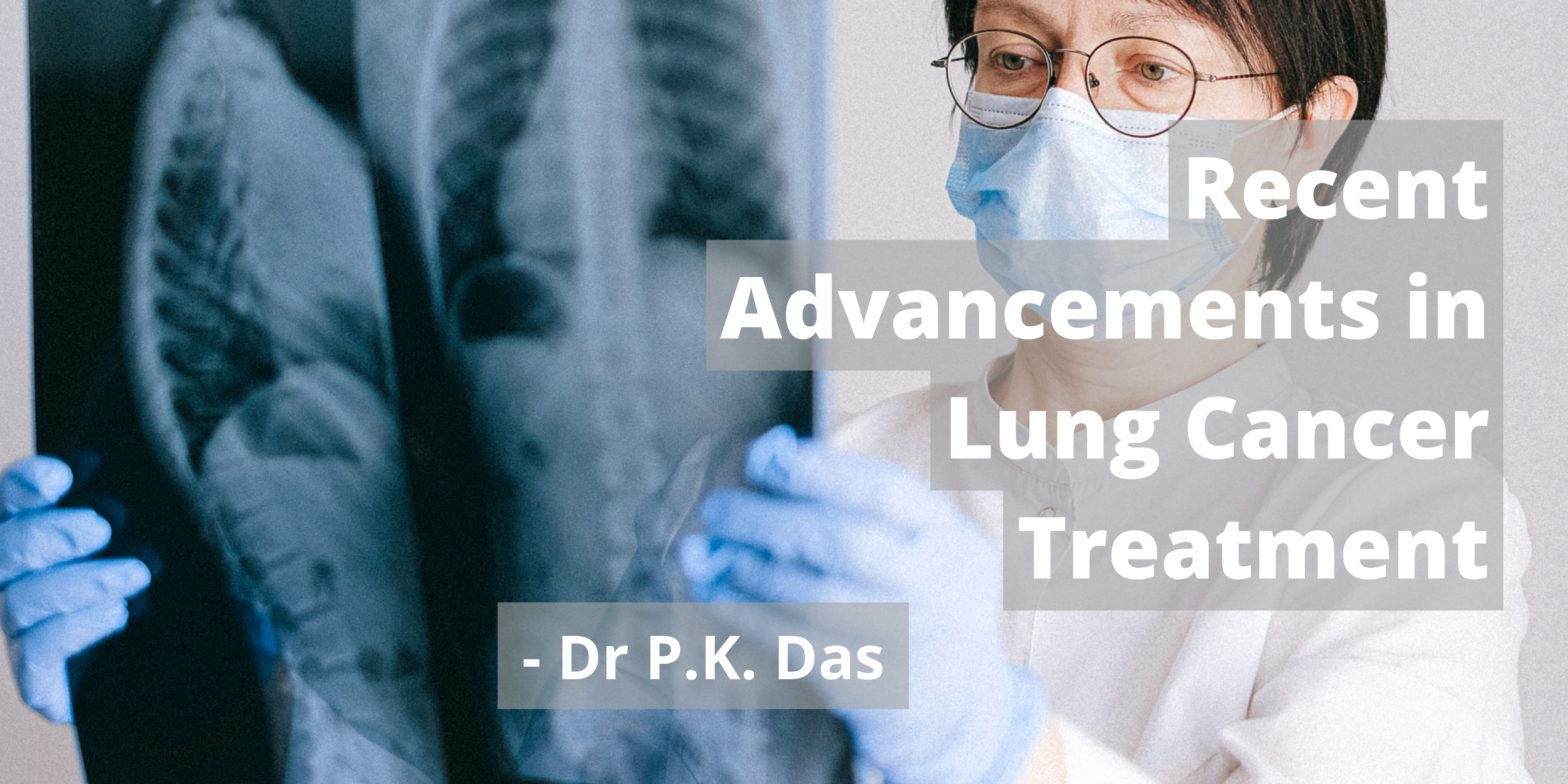|
Getting your Trinity Audio player ready...
|
Lung cancer is one of the most well-known kinds of cancer on the planet and is recorded as the most malignant cancer-related disease. Along these lines, it is constantly read up for advancements in how to treat and oversee it. This includes further developed detection, which works with better therapy results, and improvements in the immediate therapy of lung cancer. Dr PK Das is a well-known oncologist for lung cancer.
Advancements in the detection of lung cancer
The more primary lung cancer can be recognized, the more treatable it by and large is. Because of this, much exploration is being made into new techniques to identify cancer early and accordingly bring down the opportunity of mortality. One of the techniques being examined is computed tomography (CT) scans.
Primer examination of lung cancer treatment specialists in Delhi shows that low-dose CT scans can be utilized on individuals with a background marked by weighty smoking to evaluate lung cancer. A new examination is likewise focusing on whether refined CT checking can foresee the presence of cancer. CT scans can also be examined utilizing AI to maybe get on early indications of lung cancer that are not seen by pathologists.
This is showing some guarantee, with one review showing that an AI program could identify and analyze two kinds of lung cancer in CT checks with 97% exactness, as well as recognize hereditary changes connected with cancer. Molecular markers are also a concentration for the prior location of lung cancers. This comes in two structures: blood and sputum examination. Blood tests might contain growth cells or molecular markers of early disease, in this way empowering early diagnosis.
Dr PK Das oncologist suggests Sputum tests that can be examined for signs or the presence of unusual cells, which might have begun in the lungs or on aviation routes. Sputum tests may likewise have molecular markers that can flag a patient’s requirement for additional examination.
Immunotherapy for lung cancer
By and large, there are five kinds of therapies accessible for lung cancer: medical procedure, radiation, chemotherapy, designated treatment, and immunotherapy. A mix of these therapy choices is habitually utilized, yet analysts are persistently looking for new choices to deal with cancers in all stages. Immunotherapy is a major focal point of the present progressions in lung cancer treatment.
These frequently utilize invulnerable designated spot inhibitors, which are drugs that block proteins on safe cells and consequently permit the resistant cells to focus on the cancer cells. The subsequent expansion in anticancer immune responses by safe designated spot inhibitors is accomplished by focusing on PD-L1 and PD-1 proteins.
The utilization of these can vary between patients, as some show tumors with raised degrees of PD-L1 proteins and may, hence, be more receptive to this treatment than others. In any case, it very well may be hard to distinguish which patients will or won’t profit from immunotherapy, and for this type of serious medical help, you should contact a lung cancer treatment specialist in Delhi.
Designated treatment of lung cancer
Designated treatment of lung cancer treatment specialists in Delhi includes utilizing therapies that can distinguish and target malignant lung cancer cells while leaving ordinary cells less hurt. Most designated treatments are protein inhibitors that stop the endurance and expansion of cancer cells. A common kind of designated treatment is utilizing anaplastic lymphoma kinase (ALK) inhibitors. They focus on a particular adjustment in the ALK quality that causes cancer, and can accordingly be utilized on patients with this gene change.
Epidermal development factor receptors are at times found at more significant levels in disease cells than in ordinary cells, which adds to their development and multiplication. Inhibitors that target epidermal development factor receptors are utilized as designated treatments against lung cancers.
There are two different qualities engaged with signaling and cell development that can be focused on in cancer medicines: ROS1 and BRAF. For ROS1, two endorsed designated inhibitors can be utilized on patients with a particular adjusted type of ROS1. Additionally, BRAF inhibitors can be utilized in patients with a particular change in that quality. But any treatment you should consult once with Dr PK Das oncologist.
Advances in lung cancer surgery
The medical procedure is one of the most well-known therapies for patients who are viewed as fit to the point of dealing with it. It tends to be utilized for beginning phase lung cancer with extraordinary impact, particularly as less obtrusive options become accessible. This incorporates, for example, a video-helped thoracoscopy medical surgery, which takes into consideration less fit patients to utilize this therapy choice and has, in certain investigations, demonstrated to be more successful than an open medical procedure.
The video-helped thoracic medical procedure is utilized to treat small lung tumors, yet its utilization for bigger cancers is as of now being explored. One more kind of medical procedure approved for lung cancer is an automated assisted robotic-assisted surgery. This includes the specialist moving careful instruments utilizing robotic arms.
Presently, there isn’t a lot of proof to show that this kind of medical procedure is more viable than the traditional surgery for lung cancer. It is also commonly restricted to cancer centers and isn’t open to more modest clinics.
Conclusion
Yet, despite the new advances in therapy, lung cancer (both SCLC and NSCLC) remains hard to treat in many individuals, particularly once it arrives at a high-level stage.

